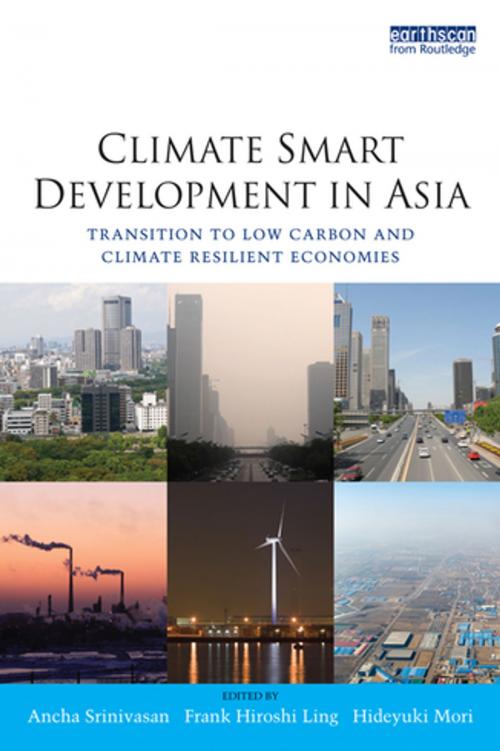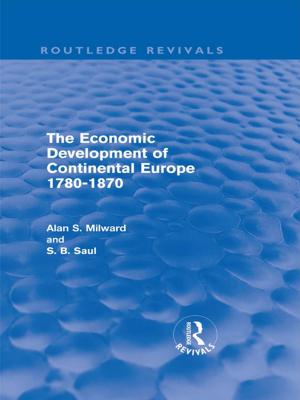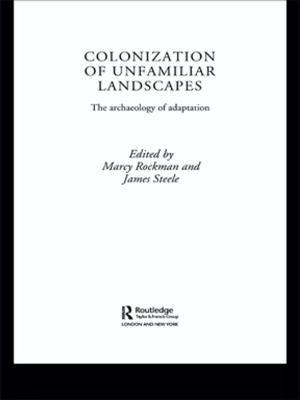Climate Smart Development in Asia
Transition to Low Carbon and Climate Resilient Economies
Nonfiction, Social & Cultural Studies, Political Science, Government, Public Policy| Author: | ISBN: | 9781136496912 | |
| Publisher: | Taylor and Francis | Publication: | July 3, 2013 |
| Imprint: | Routledge | Language: | English |
| Author: | |
| ISBN: | 9781136496912 |
| Publisher: | Taylor and Francis |
| Publication: | July 3, 2013 |
| Imprint: | Routledge |
| Language: | English |
The future of China, India and Asia’s other emerging economies and their ability to take a ‘low-carbon’ and ‘climate-resilient’ development path determine the future of global carbon emissions and climate change. Indeed, the battle to confront global climate change will be won or lost in Asia. The transition to a low-carbon, climate-resilient economy (LCE), which involves many steps towards improved energy efficiency, alternative energy sources and transport systems, sustainable land use, eco-friendly consumption and proactive adaptation, may be regarded as the world's fourth revolution, after the industrial revolution, agricultural revolution, and the information revolution.
Asia is highly vulnerable to impacts of climate change. Yet because of its dynamic economies and massive populations, Asia offers the greatest opportunity for overcoming the trade-offs and pursuing low-carbon development pathways. With a growing consensus that there is limited time to avoid the worst impacts of climate change, scientists, engineers, policymakers, and economists across Asia have recently begun discussions on how Asia can make a transition to LCE. Most discussions, however, focused on transfer of technologies from developed to developing countries and overlooked other equally important challenges such as financing, governance, and information dissemination.
This book is the first to look at these neglected aspects of LCE and attempt to integrate both market-based and technology-based solutions into a comprehensive strategy to creating a roadmap for LCE in Asia. This book is an essential reading for economists, policy makers, practitioners, engineers and researchers concerned with climate change, energy production and development in Asia and the impacts and potential for the world.
The future of China, India and Asia’s other emerging economies and their ability to take a ‘low-carbon’ and ‘climate-resilient’ development path determine the future of global carbon emissions and climate change. Indeed, the battle to confront global climate change will be won or lost in Asia. The transition to a low-carbon, climate-resilient economy (LCE), which involves many steps towards improved energy efficiency, alternative energy sources and transport systems, sustainable land use, eco-friendly consumption and proactive adaptation, may be regarded as the world's fourth revolution, after the industrial revolution, agricultural revolution, and the information revolution.
Asia is highly vulnerable to impacts of climate change. Yet because of its dynamic economies and massive populations, Asia offers the greatest opportunity for overcoming the trade-offs and pursuing low-carbon development pathways. With a growing consensus that there is limited time to avoid the worst impacts of climate change, scientists, engineers, policymakers, and economists across Asia have recently begun discussions on how Asia can make a transition to LCE. Most discussions, however, focused on transfer of technologies from developed to developing countries and overlooked other equally important challenges such as financing, governance, and information dissemination.
This book is the first to look at these neglected aspects of LCE and attempt to integrate both market-based and technology-based solutions into a comprehensive strategy to creating a roadmap for LCE in Asia. This book is an essential reading for economists, policy makers, practitioners, engineers and researchers concerned with climate change, energy production and development in Asia and the impacts and potential for the world.















